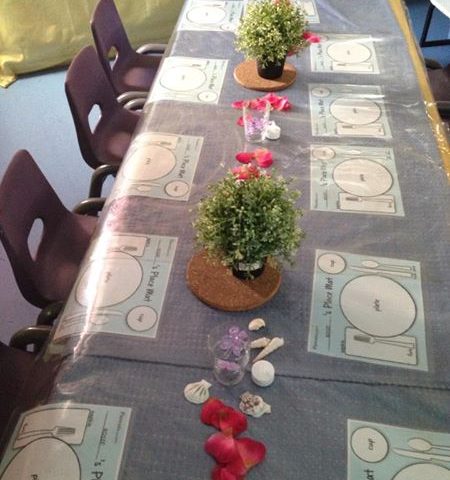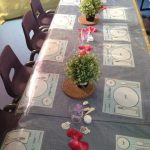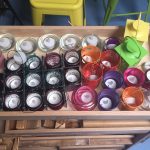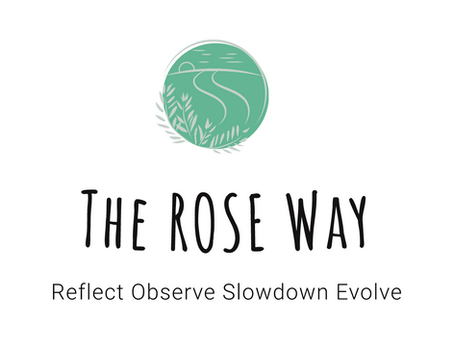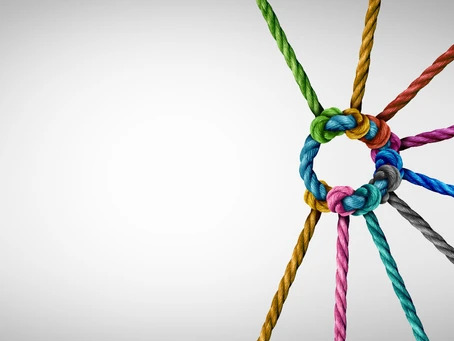Rituals are not really just ‘a routine’
Ann Pelo states: “a ritual that is alive and enlivening is deliberate, anchored by intention and desire.”
Have you thought about how children transition from inside to outside? The candles above are used for a reflective walk to engage children of all ages in some quiet, thinking time to transition from ‘busy’ outdoor play to inside.
Have you thought about meals? Intentionally planning to have small groups of children eating together enables educators to have rich and meaningful engagements. The tables above are designed to only have small groups of children. Coupled with the ambience of background music, the children’s setting and conversation this becomes an opportunity to develop strong relationships with children, rather than just supervise them eating.
“Rituals can be defined as special actions that help us navigate emotionally important events or transitions in our lives as well as enhance aspects of our daily routines to deepen our connections and relationships.”(Linda Gilesspie, 2012)
Rituals are imperative to establishing a sense of belonging and place thus enabling a safe, warm, nurturing environment where children make social connections and learn together. This aligns with EYLF Practice, pg. 16 which acknowledges thatplaces and spaces that have their own purposes, expectations and ways for children to engage. The traditions and practices of any early learning environment forges pathways of opportunities for children to establish a sense of identity, wellbeing, and security as they engage in mindful rituals.
Rituals promote the whole child, acknowledging their rights and competency as capable learners. As children’s trust develops each child’s identity emerges and their sense of self strengthens. As we engage in meaningful rituals we look through the lens of Emotional Safety as we welcome new families and educators in the Rosie’s Family, and the current children move into a new and unexplored environment.
“Rituals, predictability, and traditions are an important part of children’s daily experience and emotional wellbeing. Not only does this build security and a sense of agency but familiarity and predictability also helps children to feel a part of a group (KidsMatter, Developing Social and Emotional Skills, pg. 12).
Emotional wellbeing includes physical health, feelings of happiness and satisfaction and successful social relationships. A strong sense of wellbeing provides children with confidence and optimism, thus their learning potential is maximised.
“Lifelong learning is therefore not only an educational project but also it is a community project, where the citizens, not just workers, can learn to give and receive, build new and diffused knowledge and create courageous and unexpected futures (Carla Rinaldi).”
Take some time to reflect and collaboratively discuss how:
· Rituals nurture children’s resilience and wellbeing, paying particular attention during emotionally
loaded moments
· Rituals empower children to listen and respond to their inner voice
· Rituals foster authentic connections and how might these connections enhance leadership
opportunities
· Rituals help cement a shared partnership within your centres community

